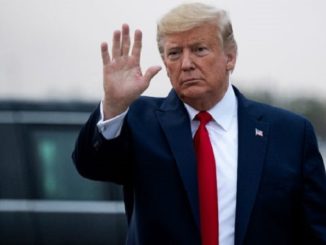
When Turkey’s leader, Recep Tayyip Erdogan, visited Beijing this summer, he hailed a new Silk Road bridging Asia and Europe. He welcomed big Chinese investments for his beleaguered economy. He gushed about China’s sovereignty, The New York Times writes.
But Erdogan, who has stridently promoted Islamic values in his overwhelmingly Muslim country, was largely silent on the incarceration of more than one million Turkic Muslims in China’s western region of Xinjiang, and the forced assimilation of millions more. It was an about-face from a decade ago, when he said the Uighurs there suffered from, “simply put, genocide” at the hands of the Chinese government.
Like Erdogan, the world has been noticeably quiet about Xinjiang, where China has built a vast network of detention camps and systematic surveillance over the past two years in a state-led operation to convert Uighurs into loyal, secular supporters of the Communist Party. Even when diplomats have witnessed the problems firsthand and privately condemned them, they have been reluctant to go public, unable to garner broad support or unwilling to risk financial ties with China.
Backed by its diplomatic and economic might, China has largely succeeded in quashing criticism. Chinese officials have convinced countries to support Beijing publicly on the issue, most notably Muslim ones in Africa, Asia and the Middle East. They have played to the discord within the West over China. And they have waged an aggressive campaign to prevent discussion of Xinjiang at the United Nations.
At a special event ahead of the General Assembly this week on protecting religious freedom, President Trump, the host of the event, did not mention the Uighurs. Vice President Mike Pence gave a nod to the Uighurs, after mentioning the persecution of Christians in China.
China contends that its state-mandated detention camps, surrounded by high walls and watchtowers, are central to its fight against Islamist extremism. Beijing has called them boarding schools, explaining detainees are there voluntarily. China said recently that it has reduced the numbers in the camps, although he doubts persist about the claim.
“There has not been a single case of violent terrorism in the past three years,” Wang Yi, state councilor and foreign minister of China, said at an event on the sidelines of the United Nations summit. “The education and training centers are schools that help the people free themselves from terrorism and extremism and acquire useful skills.”
Officials in the Trump administration have been among the most vocal critics. Secretary of State Mike Pompeo has denounced the treatment of the Uighurs as the “stain of the century.” One of his deputies, John Sullivan, who convened a panel Tuesday on the sidelines of the United Nations meeting with several other countries to condemn Beijing’s policies, said China has carried out a “horrific campaign of repression.”
While the National Security Council has pushed economic sanctions over the issue, the Treasury has the power to punish China in that way. So far, the trade talks have taken precedence. And Trump has largely ignored the issue, essentially giving China a pass.
The administration’s limited action probably affects the global calculus. If the United States does not take a leadership role on the issue, other countries do not feel the pressure to act either, The New York Times points out.




Be the first to comment